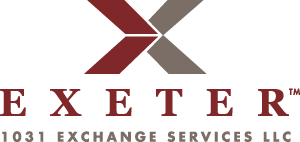Permissible and Non-Permissible 1031 Exchange Expenses
1031 Exchange proceeds can be used to pay for certain routine selling expenses related to the sale or disposition of the relinquished property and for certain routine purchase costs related to the acquisition of the replacement property without creating an income tax liability ("taxable boot").
However, if 1031 Exchange proceeds are used to pay for operating costs, financing (lender) related charges or other non-routine expenses you will recognize some income tax liability. Certain types of taxable items can be offset by other taxable items and may reduce your income tax liability.
You should therefore always review your estimated closing or settlement statement and/or HUD-1 statement with your tax advisor prior to approving the estimated settlement expenses and closing costs to ensure you have a complete understanding of the income tax consequences from the transaction prior to the closing of the transaction.
The more common permissible and non-permissible 1031 Exchange expenses, closing or settlement costs and charges are listed below. Routine permissible and non-permissible 1031 Exchange expenses and closing or settlement costs can vary by geographic region based on common practices, local standards and customs.
Permissible Selling Expenses and Closing Costs:
- Owner's title insurance premiums
- Escrow agent, settlement agent or closing attorney fees
- Real estate broker's commissions
- Finder fees or referral fees
- 1031 Exchange Qualified Intermediary fees
- Documentary transfer taxes
- Recording or filing fees
- Attorney fees and costs related to the disposition or acquisition
- Tax advisor fees related to the disposition or acquisition
Non-Permissible Operating Expenses, Financing and Closing Costs:
- Financing or lender related costs such as prorated interest expense, loan fees, loan points, appraisal fees, mortgage insurance premiums, lender's title insurance policy premiums, and other loan processing fees and costs
- Prorated Property taxes
- Prorated rents
- Insurance premium payments
- Security deposits
- Payoff of credit card balances
- Repairs and/or maintenance costs
Further, financing or lender related charges and other costs not related to the direct acquisition of the replacement property(ies) can only be paid at the close of the replacement property(ies) when the Qualified Intermediary (Accommodator) disburses all of the 1031 Exchange funds it is holding to the closing agent.
Non-1031-Exchange expenses paid with 1031 Exchange funds are taxable boot. Taxable boot may be offset by other items.
Accrued interest, prorated property tax payments, or security deposits paid to the buyer of the relinquished property can be treated by the investor as non-recourse debt from which the investor is relieved of and can be offset against debt assumed on the replacement property.
The question of whether loan defeasance costs and fees are allowable or non-allowable 1031 Exchange expenses is an exceptionally complicated issue. Legal and tax advisor opinions vary.
The investor should always consult with his legal, tax and financial advisor prior to closing on each property and completing the tax-deferred like-kind exchange transaction so these items can be addressed before it is too late. Advisors may recommend that investors pay for certain costs at the close of the transaction with personal funds to avoid creating taxable boot.
